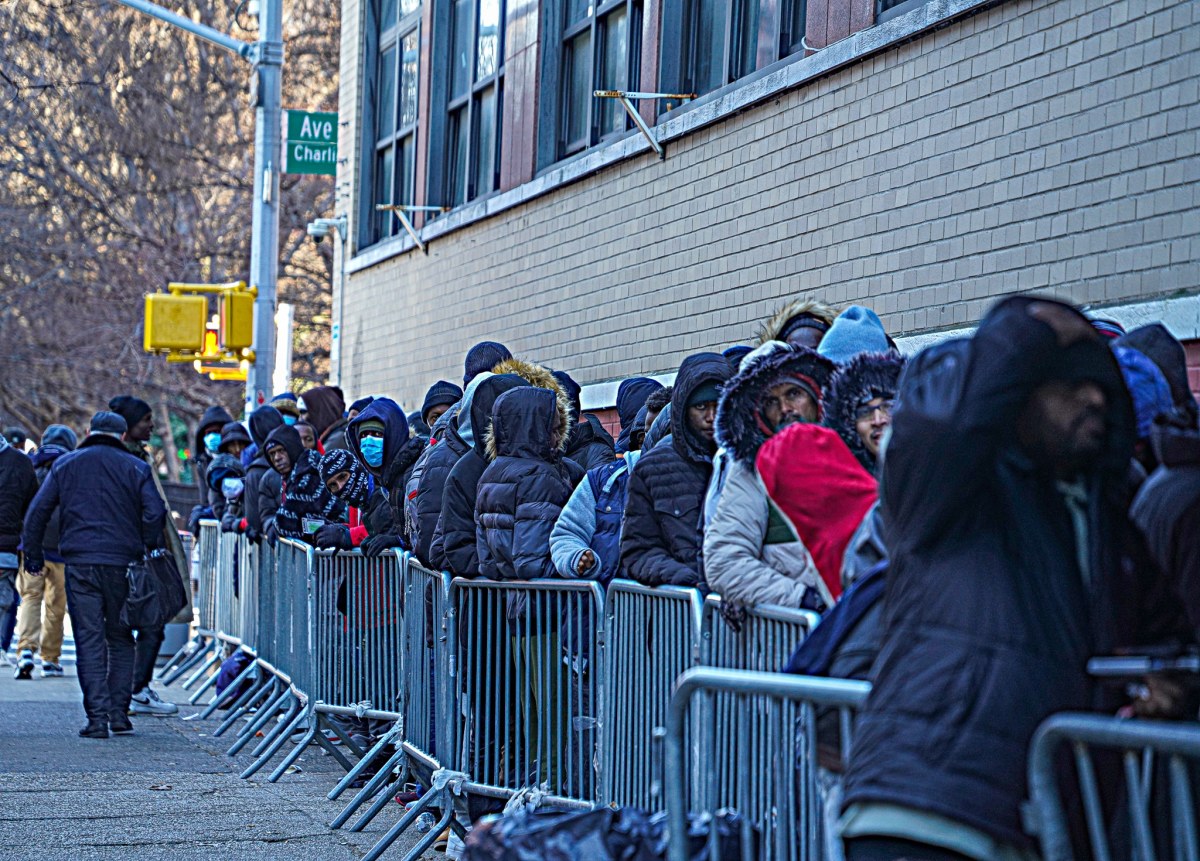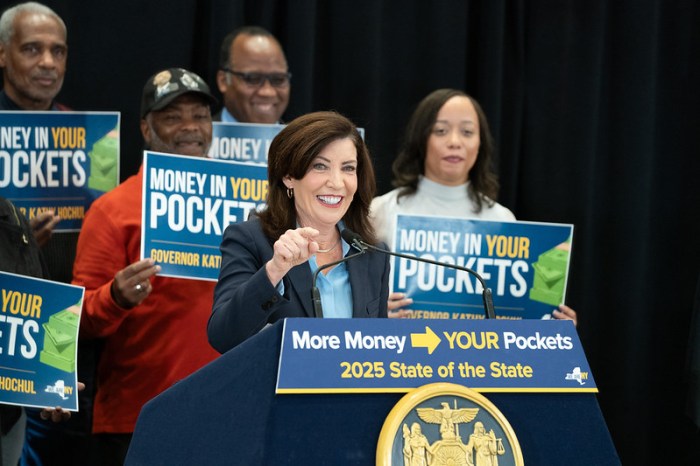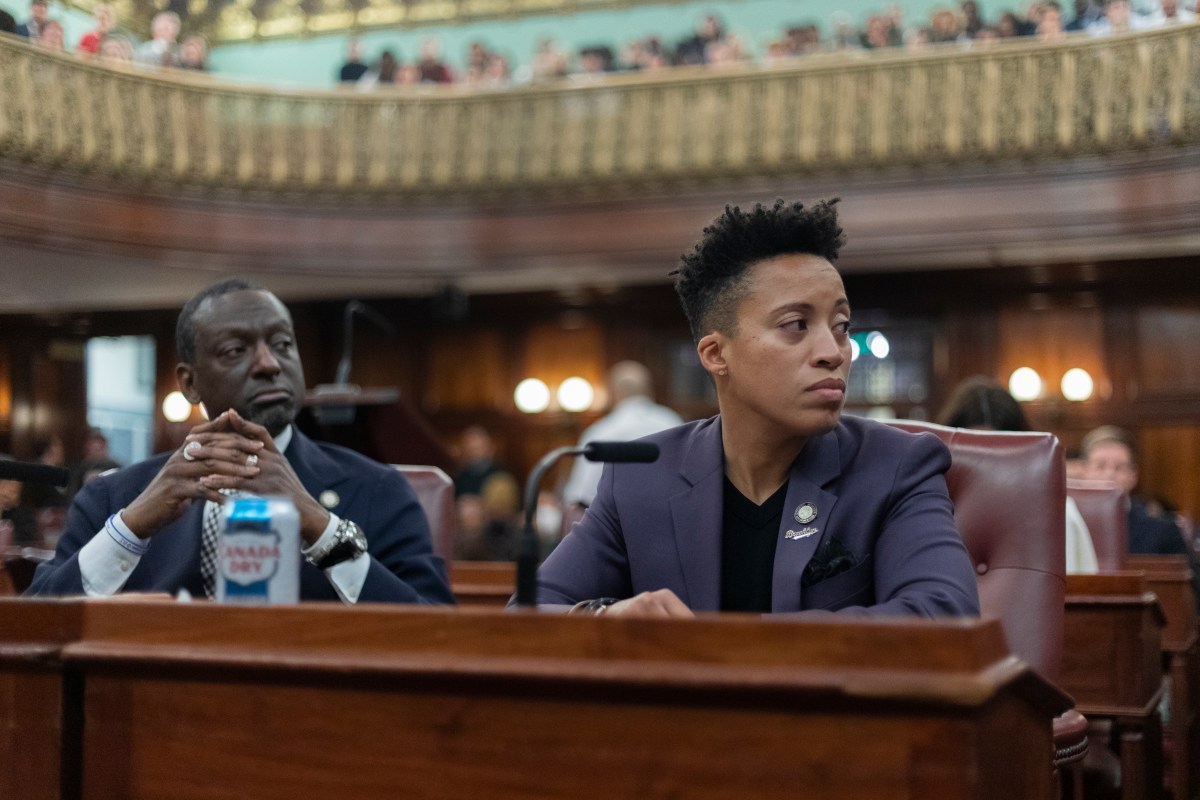New York City will implement a curfew at four migrant “respite centers” across the five boroughs as communities surrounding shelters have fumed over new arrivals begging at their doors, Mayor Eric Adams’ office confirmed on Monday.
The curfew will require migrants at the four respite centers where it is being imposed to check in at 11 p.m. and stay inside until 6 a.m. — the same curfew that is in place at shelters run by the city’s Dept. of Homeless Services, according to City Hall. The move comes in response to communities surrounding some migrant shelters complaining about newcomers going door-to-door asking for food, clothing or money, according to reporting by THE CITY.
Respite centers, operated by the city’s Emergency Management office, house newcomers for short periods of time, while they await placements in longer-term city migrant or homeless shelters.
The mayor, during a Jan. 15 interview with conservative radio host Sid Rosenberg on 77 WABC, said the goal of the policy is to make sure communities adjacent to shelters are not affected by them.
“I believe that we should have curfews, just as we have at our other shelters as part of the DSS (Department of Social Services), regular shelter system,” Adams told Rosenberg. “We should not allow people to come all times of the night … Our goal is not to harm communities.”
The curfew will be put in place on Tuesday night, the mayor’s office said.
Sites under curfew
The four sites chosen for the curfew include 35th Avenue Astoria and Judo on 35th Street and the JFK Respite Center on North Boundary Road in Queens, the Stockton Center on Stockton Street in Brooklyn and the Lincoln Manhattan on Central Park North in Manhattan, according to the mayor’s office.
Adams spokesperson Kayla Mamelak Altus, in a statement, said the policy will also help “manage” capacity in the facilities.
“Beginning this week, we will be instituting a curfew policy at our NYCEM emergency sites, in line with curfews already in place at traditional DHS shelters that serve New Yorkers experiencing homelessness,” Mamelak Altus said. “This policy will allow for more efficient capacity management for migrants in the city’s care.”
The curfew has exceptions for work, school, legal and medical appointments that will cover migrants working off the books, Mamelak Altus said, as long as they request waivers from site managers ahead of time.
Those who violate the policy three times within 30 days could lose their beds following an evaluation, she said.
Mamelak Altus said the administration has employed curfews at respite centers in the past, so it is not an entirely new policy.
A cry for help?
The mayor said that migrants begging in communities adjacent to shelters is a consequence of his administration not being able to keep up with the continued influx without far more aid from the federal and state governments.
“I said a few months ago that the visualization of this crisis is going to start to be displayed,” he said. “We have 168,000 migrants and probably as we speak we’re gonna go over 170,000. We’re getting anywhere from 2,500 to 4,000 a week Sid.”
Last week, City Council Member Joann Ariola (R-Queens) said a curfew would be “helpful,” during a private call between administration officials and city and state lawmakers.
“We’re beginning to see more and more migrants entering adjacent communities and beginning at front doors at all hours of the day and night,” Ariola said during the call, audio of which was shared with amNewYork Metro. “So a curfew would be helpful for the adjacent neighboring homeowners.”
But immigrant advocates say the policy could be harmful to newcomers.
Murad Awawdeh, executive director of the New York Immigration Coalition, said the curfew does not address the root of why migrants are begging in areas surrounding shelters.
“I think this is another irrational decision that the city’s making based on things that just don’t make any sense,” Awawdeh said. “If people are outside seeking care, support and food, which they’re supposed to be getting inside the centers, that’s the question we should be answering: why is it not happening at the centers?”
Read more: Brooklyn Protesters Urge Goldman to Support Ceasefire


































